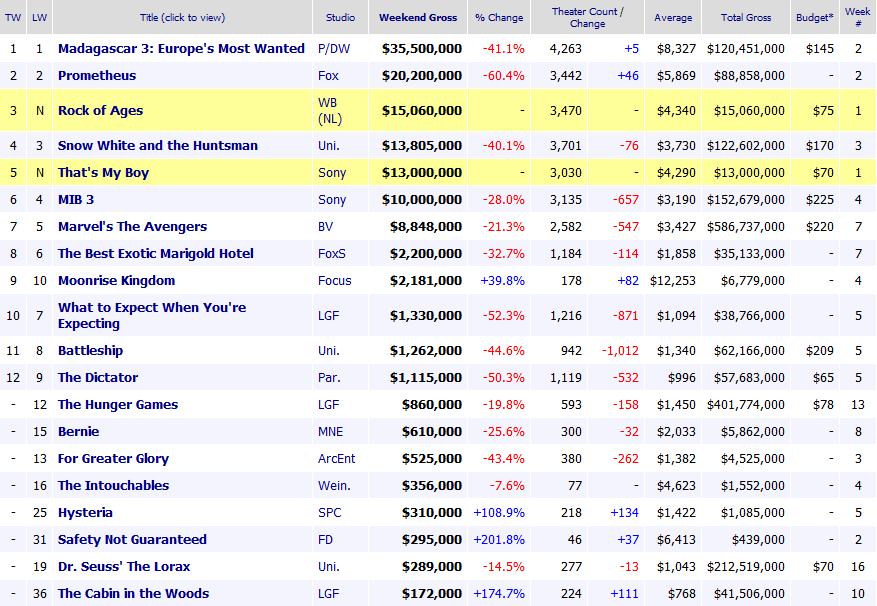Re: Prometheus - Spoiler thread!
As for the big list above. I'm not touching it. Most of that stuff has already been discussed here.

I'd actually like to play that game. What were the plot holes in Alien?
Now... I mean plot holes, as in "things that made no sense", not "mysteries that weren't answered". My biggest gripe with Prometheus is that the 'scientist' characters made massive assumptions again and again (why in the world would multiple cave paintings mean the "engineers" made life on earth instead of just visiting), and that characters like the Captain came to conclusions "It's a weapon's depot" without having nearly enough info (he hadn't even seen the "weapon's cash" yet). Did ANYTHING like that happen in Alien?
Yeah, that's sort of my point. A lot of the "plot holes" people point out are anything but. They are just people doing things that people in movies quite regularly do (versus people in the real world, who would know better) because drama needs to happen. ALIEN does that a lot, because (like, I'd say, Prometheus to an extent) it was intentionally created in the vein of classic, somewhat pulpy, horror.
As for your point, I think taking Shaw and Halloway to task because they are scientists who jump to a conclusion is doing something a LOT of people seem to do with this film. They judge their actions by the "ideal" they have in their head of what a character should do versus looking at whether their actions are consistent with the character as he or she is presented in the movie.
With Shaw, a GREAT deal is made of her "faith." Does this make her a bad scientist? I'd say so, but Scott is very purposefully exploring the intersection of faith and science here. I think the film also takes her to task for her leap in logic, which she comes to realize is very, very wrong. And I think it's interesting. The conclusion she leaps to is faintly ridiculous, though certainly the findings over thousands of years of human culture is intriguing.
With Halloway, you have a young and immature character who is clearly willing to overlook good science to go chase an adventure. With Weyland, you have a desperate man with more money than sense who is willing to finance it. Clearly there are those in his company (as evidenced by Vickers) who thinks he is nut and this is a gigantic waste of time. Which is why, yes, she does have a point as a character.

As for the Captain... just because he thinks something does not, necessarily, make it so. The truth is we still don't know exactly what the nature of the ship was. Clearly what they planned for humanity would not have been seen as favorable to us. But we STILL don't know if they intended ill-will towards us or just saw us as guinea pigs. Just because a character articulates something, we shouldn't take that as gospel. Scott showed us this through the characters of Shaw and Halloway himself.
Another question I have is about the life the engineers created on Earth. When she compared the engineer DNA to human DNA, it was a perfect match. Shouldn't there be some variation as there are variations between all organisms on Earth from monkeys to squids to koala bears to platypuses. Why are we exactly the same as the Engineers and those animals are not? Did they not come from the Engineers as well?
When it says "match" I didn't take it as an exact match. In fact, the on-screen graphic did not seem to match up exactly from what I remember. It was probably just a high enough percentage to be considered a match, which happens in real life too.
I love the parallels between Vickers and Ripley and how tragic it makes the outcome of the former...
I agree. I think Vickers main "failing" (that made her a character that was fated to die versus live) was her motivation. At the end, Ripley's fight was for survival, and she still tried her best to save her crew. Vickers wanted to go home and run what was now her company. And she was willing to let Shaw perish and not worry about the Engineer ship.

























